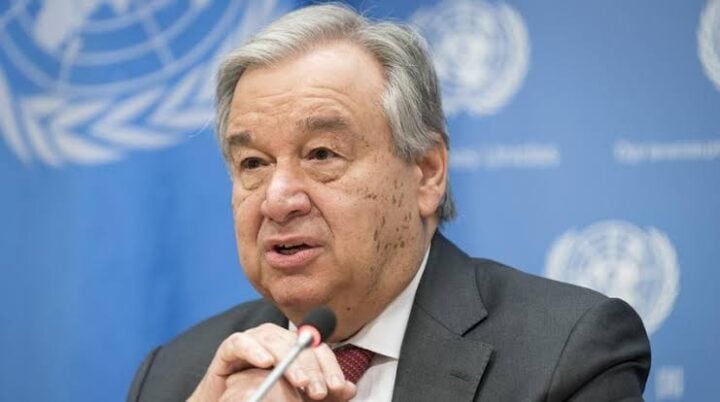Simon Stiell, the executive secretary of the United Nations, says there is a need to find new sources of finance for global climate action.
Speaking at a climate ministerial meeting in Copenhagen, Denmark on Thursday, Stiell said new sources of finance would help to meet the growing needs of developing countries.
The UN chief highlighted the benefits of the new rounds of nationally determined contributions (NDCs).
He said bold climate actions will enable countries to drive business investment, productivity and rising living standards.
Advertisement
Stiell said the new plans will be decisive in limiting global warming to 1.5 degrees and averting the worst impacts of the climate crisis.
“To undo the deadlock between developed and developing countries we need to make climate finance bigger and better,” he said.
“Bigger – to meet developing countries’ growing needs. Better, by finding new sources of finance for global climate action.
Advertisement
“Bigger, to ensure investment in resilience, maximising the ability of National Adaptation Plans to attract financial support.
“Better, by reforming development banks, recapitalising them for climate, and making the most of their resources.
“We are talking trillions, not billions. That is going to require more from all sources and serious conversations about making new innovative sources real.
“Let us cast our minds forward to December 2025. By this time, we must have welcomed a new generation of national climate plans.
Advertisement
“These NDCs 3.0 are the investment plans for the future. These new NDCs for 2035 are due less than a year from now.
“It’s equally vital that your 2030 targets are boosted in parallel, wherever possible. Both will be decisive in limiting global heating to 1.5 degrees this century and averting the worst impacts of the climate crisis.
“The more each nation treats its new national climate plans as an economy-wide blueprint for growth and jobs, the more opportunity and security it will provide its people.
“NDCs 3.0 which double as national investment plans can steer economies towards growth-driving industries and services fuelled by renewable energy.
Advertisement
“The benefits will be even greater when these plans also boost skills and workforce participation, particularly for women.
“If we halve greenhouse gas pollution by 2030 while tripling renewable energy and doubling energy efficiency, we will also help free countries from the vagaries of volatile fossil fuels prices.
Advertisement
“Pollution will drop sharply, saving millions of lives, and delivering major budget savings for governments and taxpayers.
“To take these plans from economic blueprints to shovel-ready projects to real economy outcomes will require a sea-change in climate finance.”
Advertisement
World leaders are constantly looking up finance sources for climate action. However, a couple of initiatives that have so far been considered have fallen short of expectations.
The United Nations Environment Programme (UNEP) said adaptation financing needed for developing countries is estimated at $215 to $387 billion annually this decade.
Advertisement
UNEP said despite these needs, climate finance flows to developing countries declined by 15 percent to $21.3 billion in 2021, after having increased to $25.2 billion between 2018 and 2020.
The organisation said the current climate adaptation finance gap is widening and now stands between $194 and $366 billion per year.






